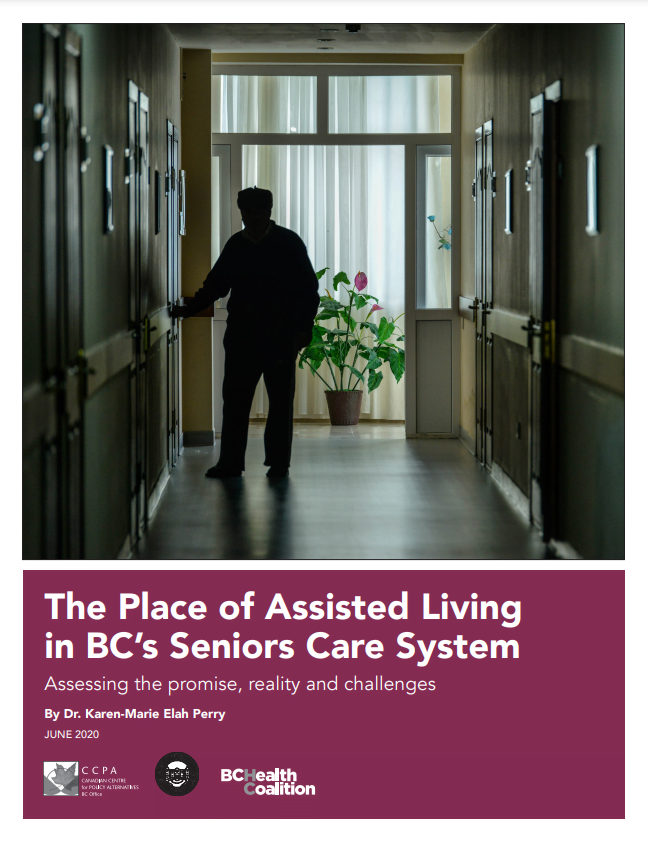Search the Baseline Project
To search the recommendations database, please visit the database main page.
To search the recommendations database, please visit the database main page.

“The Place of Assisted Living in BC’s Seniors Care System: Assessing the promise, reality and challenges” by Dr. Karen-Marie Elah Perry was co-published in June 2020 by the Canadian Centre for Policy Aternatives, the Hospital Employees’ Union and the BC Health Coalition. This report elaborates on recommendations to the Government of British Columbia examining challenges in assisted living and how they can be addressed.